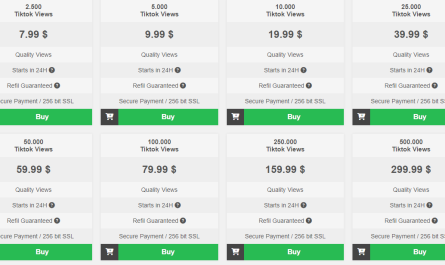Online betting has rapidly transformed into a significant economic force globally, influencing various sectors beyond its immediate sphere. As the digital landscape evolves, so does the manner in which people engage in recreational activities such as betting. Initially limited to physical locations like casinos and sports tracks, betting has now permeated the online realm, making it accessible to a broader audience. This shift to online platforms has not only democratized access to betting but also injected substantial revenue into economies. It employs technology and internet services, stimulates innovations in digital security, and even impacts banking sectors with the growing need for new payment solutions. Moreover, online betting’s integration into the global economy drives significant tax revenue and creates thousands of jobs, from tech support to customer service. As such, its economic footprint is both wide-ranging and profound, reflecting its role as a major player in the digital age.
Rise of Betting Apps
The expansion of the online betting industry has been significantly propelled by the development of dedicated mobile applications that allow users to place bets with ease and security. Among the myriad of options available, the 1xbet apk stands out as a premier example, offering a comprehensive range of betting options that cater to diverse preferences. This application not only provides convenience and accessibility but also enhances user engagement through sophisticated features like live betting, multi-live video streams, and detailed game statistics. The availability of such applications has revolutionized how bettors interact with sports events, turning every smartphone into a portable betting station. As mobile adoption continues to soar worldwide, betting apps have become crucial in driving the growth of the online betting economy. They bridge the gap between traditional betting practices and the digital age, offering a seamless integration of user-friendly interfaces and robust functionality, thereby attracting a new generation of tech-savvy bettors.
Exploring Market Leaders
The online betting industry is dominated by several key players whose innovative approaches have significantly shaped market dynamics. A pivotal figure among these is 1xbet, which has established itself as a leader due to its robust betting environment and customer-focused services. The success of 1xbet can be attributed to a variety of factors that underscore its strategic operations and consumer appeal:
- Wide Range of Betting Options: From sports betting to casino games, 1xbet offers an extensive selection that caters to different interests.
- Competitive Odds: Providing some of the best odds in the market, it attracts seasoned bettors.
- Global Accessibility: The platform is available in multiple languages and accepts various currencies, making it accessible worldwide.
- Technological Innovation: Constant updates and cutting-edge technology ensure a smooth user experience.
- Effective Customer Support: Round-the-clock assistance helps resolve issues swiftly, enhancing user satisfaction.
These characteristics not only highlight the operational excellence of 1xbet but also illustrate how major players within the sector continue to drive growth and innovation. By setting industry standards for quality and engagement, such market leaders play a crucial role in shaping the future of online betting. The influence of these giants extends beyond their own platforms, affecting broader market trends and consumer habits in the digital betting landscape.
Economic Benefits of Online Betting
The economic influence of online betting extends far beyond the direct revenues it generates. This sector has become a pivotal contributor to the economy, driving growth in several ancillary areas. Firstly, online betting platforms significantly boost tax revenues for governments, providing funds that can be allocated to various public sectors such as education, healthcare, and infrastructure. The operational dynamics of these platforms require a wide range of services, including software development, cybersecurity, and financial services, which stimulate job creation and business opportunities in related fields.
Additionally, the international nature of online betting facilitates cross-border economic activity. For instance, many countries attract international bettors, leading to an inflow of foreign currency, which can strengthen local economies. Furthermore, online betting companies often sponsor sports teams and events, injecting substantial capital into the sports industry. This sponsorship is vital for many smaller sports organizations and contributes to the overall growth of sports and entertainment industries globally. Thus, the ripple effects of online betting are felt widely, making it a significant economic driver in the global marketplace.
Challenges and Risks in the Betting Economy
While the economic benefits of online betting are substantial, the industry also faces several challenges and risks that can undermine its sustainability and positive impact. These challenges require careful management and regulation to ensure that the benefits continue to outweigh the risks:
1. Regulatory Compliance: Navigating the complex web of international regulations is crucial. Different countries have varying laws regarding online betting, making compliance a significant challenge for operators.
2. Addiction and Social Impact: The potential for addiction is a serious concern. Ensuring responsible gambling practices and providing support for gambling addiction are essential for maintaining social welfare.
3. Cybersecurity Threats: Online betting platforms are prime targets for cyber attacks. Protecting user data and securing transactions are paramount to maintaining trust and operational integrity.
Addressing these issues effectively not only ensures the smooth operation of betting platforms but also helps in sustaining the long-term growth of the industry. Implementing stringent regulatory measures, promoting responsible betting, and enhancing cybersecurity protocols are all crucial steps that operators must undertake to mitigate these risks and protect both their customers and their business interests.
Future Trends in Global Online Betting
The future of online betting promises to be shaped by several emerging trends that are poised to redefine the industry. As technology continues to evolve, we can expect significant advancements that enhance user experience and expand market reach. One of the major trends is the integration of blockchain technology, which offers greater transparency and security in transactions, potentially attracting a broader audience by ensuring fairness and reducing fraud.
Another key development is the adoption of artificial intelligence (AI) to personalize user experiences and improve betting odds accuracy. AI can analyze vast amounts of data to offer tailored recommendations and more predictive insights, leading to higher engagement levels. Additionally, the rise of virtual reality (VR) technology is set to create more immersive betting environments, making online betting more interactive and engaging.
These technological advancements, coupled with regulatory changes and the increasing acceptance of online betting in new markets, suggest that the sector is on the brink of a significant transformation, promising to deliver a more dynamic, secure, and user-centric future.
Betting’s Role in the Global Market
In conclusion, online betting is not merely a form of entertainment; it’s a significant economic force that influences global markets. The industry boosts economies through job creation, tax revenues, and technological advancements. However, it also faces challenges such as regulatory hurdles and social impacts. Addressing these effectively will be crucial for sustaining growth and ensuring that the benefits of online betting continue to contribute positively to the global economy. The future holds promising advancements that could further cement its role as a key player in the digital world.

